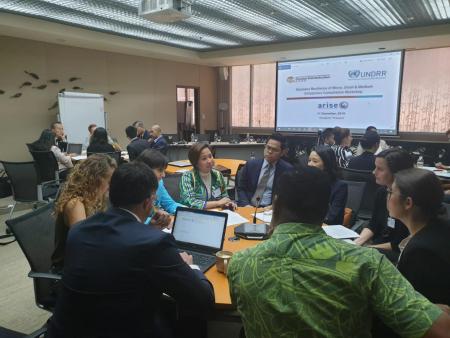
Participants from the private sector, development agencies, and technical experts engaged in discussions.
By Omar H Amach
BANGKOK, 11 December 2019 - With strong support from the ARISE networks in Japan, India and the Philippines, the UN Office for Disaster Risk Reduction organized a consultative workshop to identify pathways to help build the business resilience of micro, small and medium enterprises in Asia-Pacific.
Small businesses represent the bulk of the private sector in all countries, employ large portions of the population and are instrumental to the social and economic fabrics of their communities.
According to the Association of Southeast Asian Nations (ASEAN), micro, small and medium enterprises account for up to 99% of business establishments in their ten member states, contributing more than 50% of ASEAN’s GDP and employing more than 80% of the workforce.
Yet despite their significance, little data exists on the small businesses in most countries, and on the disaster impact on small businesses, perceptions of business owners of their risk environment, and their utilization of available tools. Moreover, the informal nature of many of these enterprises makes them invisible when it comes to disaster resilience and risk reduction considerations.
As the region faces a new trend of high-frequency and high-impact disasters due to drivers of risk such as urbanization and climate change, these small businesses are vulnerable to disruptions, and even closure, as a result of disasters. This also puts at risk the livelihoods of the people who are employed by them and the communities that benefit from their services.
While there has been progress in the region in promoting business continuity plans to improve preparedness, these plans do not address the drivers of risks, and have limited role in enabling such businesses take risk-informed decisions.
“Resilience building should go beyond minimizing disruptions. It should help businesses not only survive a disaster but thrive and prosper,” explained Mr Animesh Kumar, Deputy Chief of UNDRR Asia-Pacific, who set the scene for the consultation.